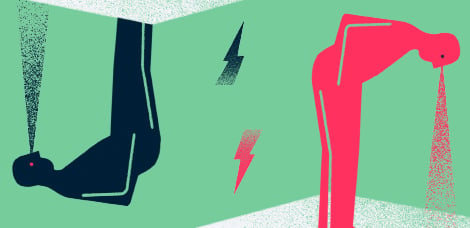
On any given Sunday, while sharing a cup of tea with my grandmother and celebrating her 80th birthday, I asked her what it feels like to blow out the candles for one more year and join the octogenarian club. Her response, although it shouldn’t have surprised me, caught me off guard. With calm and sincerity, she said, “Today, I feel good because you are all here, visiting me, but on the other days, it feels like the world keeps on turning, and everyone is moving forward while I remain still.” Her husband, my grandfather, passed away before her, a situation shared by many women, as, on average, women have a life expectancy five years greater than men. Her lifelong friends have bid their farewells in recent years, and she finds herself increasingly alone.
This conversation with my grandmother reflects the experience of many older people around the world, who face the challenge of loneliness, the loss of loved ones, and a society that often overlooks them. For instance, in the United States, nearly one-third of older people live alone, which equates to more than 14.7 million individuals (5 million men and 9.7 million women). This is one of the many reasons why the United Nations General Assembly designated October 1st as the International Day of Older Persons in 1990: a day aimed at addressing the opportunities and challenges of an aging population in the 21st century and promoting the development of a society for all ages.
An Aging Population Across Almost Every Region of the World
This year, this commemoration takes on special significance as the global population continues to age. Current estimates indicate that the total number of people over 60 years old will increase significantly in the coming decades, reaching 2.1 billion by 2050 and possibly reaching 3.2 billion by 2100. In Europe, individuals aged 60 and older will account for 34% by 2050, and in Latin America, the Caribbean, and Asia, it will be 25%. In the United States, the Census Bureau predicts that by 2034, for the first time in the country’s history, there will be more people over 65 years old than under 18.
This demographic transformation presents significant challenges and opportunities. The specific needs of the elderly population must take into account medical factors such as chronic diseases and physical and cognitive limitations, as well as social factors, including loneliness and family environment.
Increasing Loneliness and Greater Risk of Diseases
A recent study on loneliness and its impact on the health of older adults yielded concerning results that emphasize the importance of addressing this issue effectively. The research, conducted by the Institute for Healthcare Policy and Innovation at the University of Michigan, was based on a national survey of American adults aged 50 to 80 and revealed that feelings of social isolation were more prevalent among those with poor mental or physical health compared to those in excellent, very good, or good health. Specifically, 77% of individuals with fair or poor mental health reported feeling isolated at some point in the last year, contrasting with the 29% of those with better mental health. The same pattern was observed concerning physical health, where 55% of individuals with fair or poor physical health experienced feelings of isolation, compared to 29% of those in better physical health. Additionally, people with health problems or disabilities that limited their daily activities were more likely to feel isolated, with 51% of this group reporting feelings of isolation, in contrast to only 26% of those without such limitations.
These figures add to the fact that the feeling of loneliness can be associated with diseases such as dementia, an increased risk of stroke, mental health disorders, or other degenerative diseases, as highlighted by recent research published in the journal JAMA Neurology. This research revealed a surprising connection between loneliness and a 37% increased risk of developing Parkinson’s disease. This poses a real challenge not only for those affected but also for healthcare systems, given the high cost associated with diseases like Alzheimer’s and other dementias. In the United States in 2021, healthcare and long-term care costs related to these diseases reached $355 billion.
Dignity, an indispensable attribute for enjoying a fulfilling life in old age
Age-based discrimination represents a serious threat to the dignity of older individuals, with consequences that can even jeopardize their lives or their ability to survive in the face of illness, dependency, or catastrophic situations. Therefore, it is essential to learn from the experiences of older people and listen to their voices, not only as an act of admiration for their life experience but because they are the ones, firsthand, who should express their interests, needs, and perspectives regarding how public institutions should operate, what specialized medical care they require, as well as treatments, care, and other infrastructure requirements.
A recent article in The New York Times underscores the demand of the elderly who “desire to age with independence and dignity, free from ailments and pain, and to have the vitality to enjoy moments with their loved ones, like playing with their grandchildren.” This highlights the need for a collective effort as a society to recognize the importance of preserving the dignity of our elders and providing them with the support and care they deserve.
As we mentioned in our latest paper, “Con más Canas que Ganas,” it is time to engage in a serious debate about the actions that we, as a society, must take to address the growing demographic crisis. The process of population aging will not resolve itself automatically, and the sooner we adopt substantial measures, the better prepared we will be to address this increasing challenge.
As we mentioned in our latest paper, “Gray and Growing,” it is time to engage in a serious debate about the actions that we, as a society, must take to address the growing demographic crisis. The process of population aging will not resolve itself automatically, and the sooner we adopt substantial measures, the better prepared we will be to address this increasing challenge.
Ana Lluch Coordinadora Healthcare Américas



